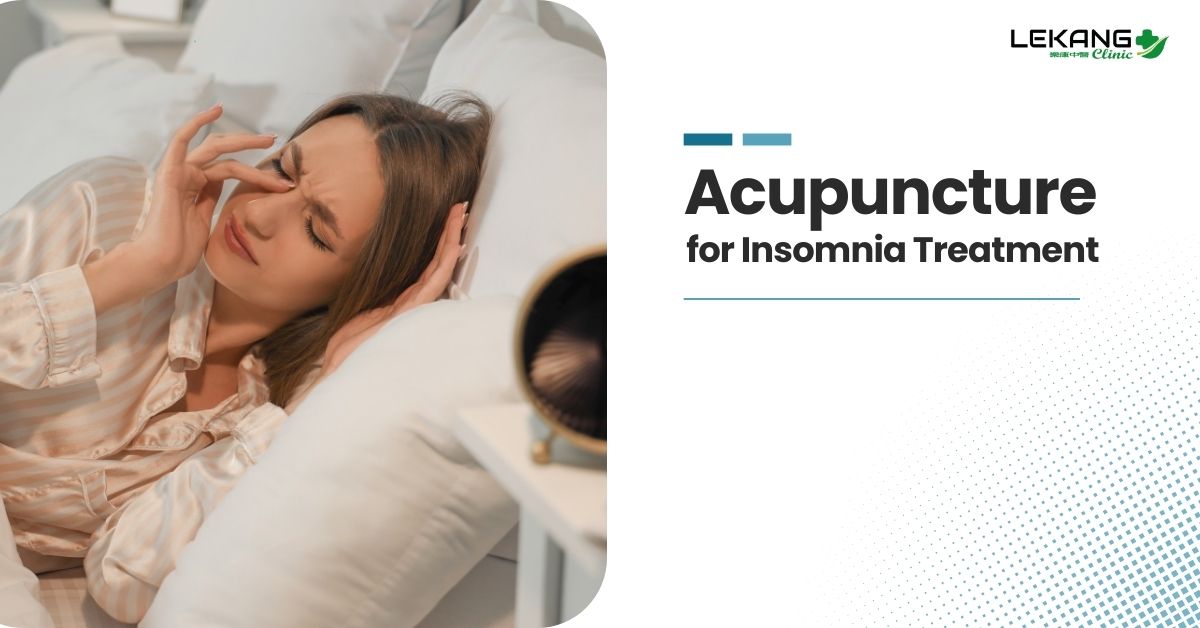TOPIC:Acupuncture for Insomnia
2025-11-07 View: 88 | Written by:lekang

Acupuncture for Insomnia: A Traditional Chinese Medicine Perspective
In Traditional Chinese Medicine (TCM), insomnia is regarded not merely as a sleep disorder, but as a reflection of deeper internal imbalances within the body. These imbalances may involve the fundamental substances—Qi (vital energy), Blood, Yin, Yang, and Shen (spirit)—and dysfunctions in the major organ systems such as the Heart, Liver, Spleen, Lungs, and Kidneys. According to TCM theory, the Heart governs the mind and spirit, and when Heart Qi or Blood is disturbed, the Shen becomes restless, leading to difficulty falling or staying asleep. Likewise, when Liver Qi is stagnant or transforms into internal heat, it can cause irritability, vivid dreams, and nighttime awakening.
Modern scientific studies increasingly support these traditional insights. Research published in leading journals has demonstrated that acupuncture can significantly improve sleep quality and duration, reduce the time it takes to fall asleep, and enhance overall well-being. Acupuncture has been shown to regulate neurotransmitters and hormones such as serotonin, GABA, and melatonin, which play crucial roles in maintaining healthy sleep patterns. It also helps to balance the activity of the autonomic nervous system, promoting a shift from a “fight-or-flight” state to a “rest-and-digest” mode, allowing the body and mind to relax naturally.
From a TCM standpoint, the types of insomnia can be classified according to the underlying patterns of disharmony:
• Difficulty falling asleep: often due to blocked Yang Qi or excessive mental activity preventing relaxation.
• Frequent nighttime awakenings: associated with internal heat or fire, commonly linked to Liver or Heart imbalance.
• Early morning awakening: related to Kidney Yin deficiency or depletion of vital essence.
• Restless sleep with vivid dreams or nightmares: may result from excessive Heart fire or Liver Qi deficiency.
• Chronic and severe insomnia: frequently connected to Spleen or Liver Blood deficiency, leading to malnourishment of the Heart and Spirit.
Through the gentle insertion of fine, sterile needles at specific acupuncture points, treatment helps to restore the harmonious flow of Qi and Blood, calm the Shen, and regulate the body’s natural rhythm. Patients often report not only better sleep, but also improvements in mood, concentration, and overall energy levels.
In addition to acupuncture, cupping therapy, moxibustion, and Chinese herbal medicine are often used as complementary treatments. Herbal formulas may nourish the Heart and Liver Blood, clear internal heat, or tonify Kidney Yin—depending on the patient’s individual diagnosis. A series of treatments is usually recommended to achieve lasting results, as the goal is not only to induce sleep but also to address the root cause of the imbalance.
With its holistic approach, TCM acupuncture offers a safe, natural, and evidence-supported alternative for individuals suffering from insomnia. By rebalancing the body’s internal energy and calming the mind, it helps restore deep, restorative sleep without dependency on medication.
More information:
- Location: Trendy office & plaza, 1A floor, Sukhumvit 13, North Klongtoey, Wattana, Bangkok.
- Service hours: Mon / Fri / Sat 10:00am - 7pm, Tue - Thur 09:00am - 05:30pm.
- Tel. : 0813558736
- Line ID : @lekangclinic
- WhatsApp : +66 81 355 8736
- Email: [email protected]